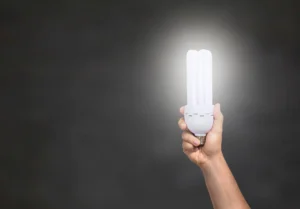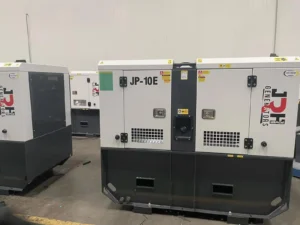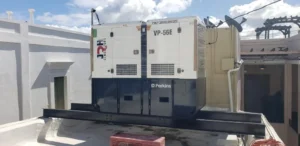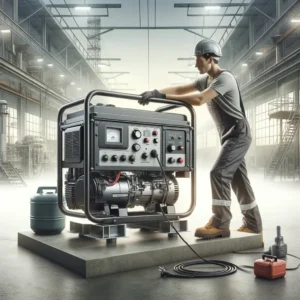10 precautions with electricity
It is not difficult to find information on electrical installations on the internet accompanied by the phrase “Do it yourself”. Many times this information about electrical installations is that and nothing more: about electrical installations, about how to carry out the work. And then the most important thing is forgotten when it comes to intervening in electrical circuits: the precautions that we must take with electricity.
In view of this, it is imperative to have all the security measures and precautions that are at our disposal to avoid any eventuality. Next, we list and explain the 10 precautions that we must have with electricity.
On the one hand we have the precautions that we must take with electricity in daily life, which are what we must take into account every day in our usual environment; On the other hand, we have the precautions and safety measures that we have to take into account when intervening in a circuit or electrical installation.
Table of Contents

Precautions we must have with electricity
At home or in the office, or wherever our daily life takes place, we will surely be in contact with appliances, machines or devices that work thanks to electricity. Although it is probably a very safe environment, unpleasant eventualities are never completely averted; that is, a short circuit, an overload, or excessive heating in the installation can always take place.
No precaution is too much for our safety and that of our environment, nor is any measure sufficient for an electrical installation to be one hundred percent completely and definitively safe. However, there are a series of precautions that can be implemented to reduce the risk to practically zero. Let's see what they are.
Periodically check the status of the electrical installation
Regularly checking that all the elements that make up the electrical network of our house are in optimal conditions can make a difference. For example, it is essential that the entire network has a ground pole.
Frayed cables, whose inner material (usually copper) can be seen, are extremely dangerous and radically increase the risk of a short circuit. In the same way, the outlets or plugs must have the cables that reach them correctly connected. The electrical boards must work perfectly.
Avoid overlapping connections
It is common that, given the number of appliances we have, many times the plugs or outlets in our house are simply not enough. So we resort to the famous power strips, which multiply the number of outlets to satisfy our demand.
However, this object can be very dangerous if not used properly. If high-consumption appliances, such as refrigerators or irons or air conditioners, are connected to a low-quality power strip, it is likely to cause excessive heating in the outlet and even a fire.
Keep outlets isolated
Interestingly, one of the most desired things is a power outlet near the bed, to be able to connect the cell phone and have it close at hand even there, in our resting place. But this is very risky, in case of short circuit.
It is recommended that the outlets are free, that they remain far from potentially combustible elements such as curtains, blankets, blankets or wood. Well, in an eventuality, the temperature reached by an overstressed outlet becomes such that it can burn such elements and cause a fire.
Replace appliances or electrical machines that are faulty
Replacing old appliances with newer ones not only reduces the risks of an unpleasant event, such as a short circuit that affects the entire electrical installation, but also means considerable savings in the long term; Well, newer, modern appliances are designed to be more energy efficient.
Warn the risks in the little ones
The curiosity of children is proverbial. Wherever their hands fit, there they will be poking and exploring. That is natural for them. For this reason, we must find a way to reduce the risk of an accident happening to them. Outlets must be properly insulated, electrical panels closed, and, in general, any potentially dangerous electrical element out of reach.
Precautions for intervening in the electrical network
It is known that an electric shock, in an extreme case, where the voltage and amperage are high, can cause death by ventricular fibrillation or suffocation. Even when it is not an extreme case, the damage to humanity of those who are electrocuted can range from strong and painful muscle contractions to terrible burns.
When intervening in the electrical installation of our home, special security measures must be taken into account to avoid misfortunes or something to regret. These are the precautions you should take into account.
Cut off the flow of electrical energy
Before anything else, it is advisable to isolate the area that we are going to intervene. If you don't have power, it's very safe to work on wires, or replace outlets, fuses, etc. Once the electricity has been cut, it will be easier to analyze the electrical network, identify the problem and solve it.
avoid humidity
Water is a great conductor of electricity. Manipulating an electrical network in the presence of some type of humidity, even when it is de-energized, is really dangerous. Similarly, not only the electrical network must be completely dry, but the surface on which we ourselves stand -or those who are going to carry out the repair- must also be dry, to avoid electrocution.
Use the right tools
Most tools on the market are made primarily of metal. Steel or iron, and in general all metals, are excellent conductors of electricity. If you choose a tool that is not specially designed for electrical work, you run the risk of electric shock. Always prefer to work with tools that are covered with an insulating material, such as PVC or rubber.
Have the indicated security elements
When handling an electrical network it is important to do so with a minimum of protection elements. No helmet, no harness, no professional coveralls required. But dielectric or insulating gloves are necessary to protect our integrity in the event of a discharge. Proper footwear is also recommended, hopefully rubber. Protection for our eyes, such as safety glasses.
Consult experts
Whenever you can use a professional electrician, it is advisable to do so. Leaving things in the hands of a qualified and recognized expert is never going to be a bad idea. They have extensive knowledge and experience that guarantees not only safety at work, but also its quality. Thus, trusting a professional electrician, we can save ourselves headaches and unnecessary expenses.

Hurricane season is a critical period for Puerto Rico, and being prepared can make the difference between safety and danger. In

Understanding how a hurricane forms allows us to be one step ahead and prevent the devastating effects of these natural phenomena. Especially in areas

In a world where energy efficiency is increasingly a priority, learning to save energy has become a crucial need for both

In a world that doesn't stop, the need for a reliable and continuous power source is more crucial than ever. At JRH Power

Have you ever wondered how electricity becomes a constant in our lives, even in the most critical moments? At JRH Power

In our modern world, where electricity is vital, power outages are a frequent reality. Know how to connect a generator to the house

